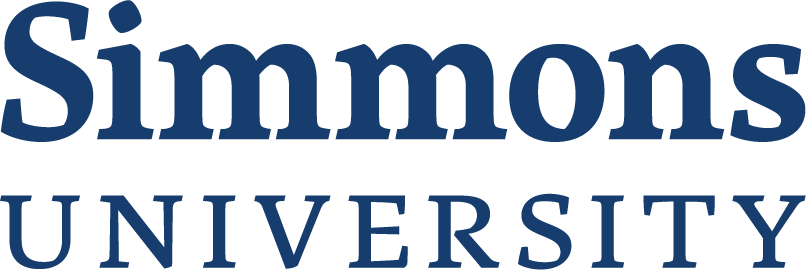Call for Papers: Special Issue on Data Collection
Posted October 23, 2015
Call for Papers: IEEE Bulletin of the Technical Committee on Digital Libraries (IEEE-TCDL)
Special Issue on Data Citation
http://www.ieee-tcdl.org/TCDL/
Citation is an essential part of scientific publishing and scholarship. Nowadays, many scientific publications are related to or based on data which are modeled, managed and stored by means of heterogeneous formats and technologies (e.g. relational databases, digital libraries, XML, RDF, CSV, …). Data citation allows us to establish a direct relationship between a data source and a publication or a statement relying on that data source.
Being able to cite a dataset or a part of a it is essential for:
- making results of research fully available to others;
- enabling others to better build on previous results and to ask new questions about data;
- replicating, reproducing and verifying research;
- advancing the state of research and innovation.
Furthermore, data citation is fundamental for giving credit to data creators and curators, to reference data in order to identify, discover and retrieve them and for building and propagating knowledge.
Commonly data citation is paired up with traditional citation practices but data present some key differences that turn out to be serious challenges impairing the development of effective data citation methodologies:
- data evolution through time;
- different formats and structures: unstructured, single files, hypertext, RDF/LOD, XML, Relational DB, raw data, streaming data;
- necessity to cite a subset of data;
- collaborative works not structured as it happens in a scientific paper;
- licensing issues: open data, limited access, credentials;
- variety of systems managing data and lack of common standards and APIs.
In the last years several international initiatives and research projects have been facing the issues concerned with data citation, but despite all these efforts there are several crucial questions that still need to be answered. For instance: how is a data source or a subset of it to be cited? When some data from a large and complex data source is extracted, how do we create a citation? How is it possible to verify the correctness of a citation? How does one retrieve the cited data? How is it possible to maintain data consistent across time handling changes? What is the role of data citations for scholarship attribution?
This Special Issue is addressed to those members of the community interested in providing novel methodologies or frameworks for managing, assessing, monitoring, maintaining and improving data citation and more in general to discuss the importance of data citation for the advancement of research.
Topics
We welcome original submissions on (but are not restricted to) the following topics:
- Principles of data citation
- Relational databases, XML, CSV, Tabular data, Linked Data, RDF citation methodologies
- Systems for data citation (digital libraries, relation databases, scientific databases, …)
- Computational problems in data citation
- Executable/Actionable papers
- Metadata for data citation
- Automatic generation of citations
- Machine-readable data citations
- Verification of citations
- Closure of citations
- Citation of evolving data
- Citation with variable granularity
- Credit attribution
- Definition and maintenance of authority lists
- Reproducibility issues
- Tools for data citation
- Tracking the impact of data
- Visualization of data citations
- The use of Digital Object Identifiers (DOI)
- Data citation for scholarship
- Data sharing
- Data citation for the humanities, psychology, social sciences, …
- Data citation for chemistry, physics, mathematics, …
- Licensing issues
- Data journals
- Relationships between traditional and data citation methods
- Enrichment of LOD for citation purposes
- Impact measures based on data citation
- Interoperability issues in data citation
- Data quality and data citation
- Data curation/provenance and data citation
- Long term preservation and data citation
- Open access to data citation
Submission guidelines
All submissions must be written in English following the ACM SIGIR author guidelines:
http://www.acm.org/sigs/publications/proceedings-templates
Submissions should be submitted electronically through the special issues submission system:
https://easychair.org/conferences/?conf=ieeetcdldc2016
Accepted papers will be published in a dedicated issue on the IEEE Technical Committee on Digital Libraries (TCDL) Bulletin (http://www.ieee-tcdl.org/Bulletin/current/index.html).
Important Dates
30 November 2015 – Initial submission deadline
15 January 2016 – Initial reviewer feedback
15 February 2016 – Revised submissions deadline
11 March 2016 – Final decision
25 March 2016 – Camera ready
Mid April 2016 – Publication
Special Issue Editors
Nicola Ferro, University of Padua, Italy [email protected]
Gianmaria Silvello, University of Padua, Italy [email protected]
Special Issue Editorial Board
Christine Borgman, UCLA, USA
Paul Clough, University of Sheffield, UK
Stefano Ferilli, University of Bari, Italy
Edward Fox, Virginia Polytechnic Institute and State University, USA
Norbert Fuhr, University of Duisburg-Essen, Germany
Paul Groth, Elsevier Labs, The Netherlands
Bradley Hemminger, University of North Carolina, USA
Jaap Kamps, University of Amsterdam, The Netherlands
Noriko Kando, National Institute of Informatics, Japan
Christina Lioma, University of Copenhagen, Denmark
Paolo Manghi, Consorzio Nazionale delle Ricerche, ISTI-CNR, Italy
Andreas Rauber, Vienna University of Technology, Austria
Seamus Ross, University of Toronto, Canada
Heiko Schuldt, University of Basel, Switzerland
Costantino Thanos, Consorzio Nazionale delle Ricerche, ISTI-CNR, Italy
